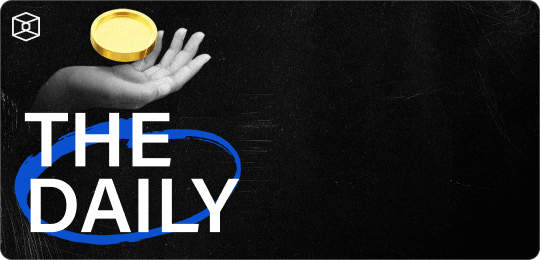Solana Foundation unveils tools that turn any website or app into starting point for crypto transactions

Quick Take
- The Solana Foundation is introducing tools that are able to turn websites, apps, social media platforms and QR codes into launching points for crypto transactions on the Solana blockchain.
- The tools are similar to Frames on Farcaster, but are designed to work on any website, including X.

The Solana Foundation is releasing tools that aim to transform any website or application into a gateway for crypto transactions.
The first new tool, dubbed "Actions," enables users to complete on-chain transactions on websites, social media platforms and QR codes, the foundation said in a statement on Tuesday.
The foundation also said it is introducing “blinks” — a portmanteau of blockchain and links — which is able to turn any “Action” into a shareable link. This means that any digital pathway where a URL can be displayed becomes a starting point for a crypto transaction on the Solana blockchain.
"Access to blockchain protocols has long been isolated to dapps and other wallet-aware tools," said Jon Wong, head of ecosystem engineering at the Solana Foundation. "Actions and blinks on Solana allow any website and application on the internet to be a distribution point for on-chain interactions, furthering the goal of mainstream adoption."
Blinks are similar to Frames, which are blockchain-based actions that live within the social media platform Farcaster. However, blinks are not limited to one app, but can be used much more broadly.
For some time now, blockchain developers promoting major protocols like Solana confronted simplifying the accessibility and use of blockchain-powered tools and apps in order to draw more mainstream users into the crypto economy. Other efforts have included web3 companies integrating with the traditional fintech PayPal and Mysten Labs seeking to make it possible to send and receive crypto using email.
Jupiter, Tensor, Phantom and more
Teams that plan to begin imminently testing and utilizing Solana Foundation's Actions and blinks include Cubik, Sanctum, Tensor, Realms, Access, Jupiter, Helium, Truffle, Helius, Phantom and Backpack, according to Solana Foundation.
In a statement, Chris Osborn, founder and CEO of the smart messaging protocol Dialect Labs, expressed his enthusiasm for what the Solana community might create using the new tools and how they could shape future interactions.
"Actions and blinks deliver on one of the internet's original promises: they make experiences portable, shareable, and actionable on any surface," he said. "From your X feed you can buy [an] NFT, tip a creator, receive money, vote, stake, swap and so much more."
Scam prevention
Making it easier to execute crypto transactions may have the adverse effect of simultaneously providing bad actors with additional ways to try and rob people of their digital assets with malicious links. Solana Foundation said users should remain vigilant, and only trust the websites they are familiar with, similar to how many in crypto stick to the dapps they know and trust.
"Blinks are executed on a different origin [such as a social media platform like X or Reddit] than their Action, so some caution should be exercised," said Solana Foundation while also pointing out that it has made its official partners public knowledge. If someone attempts to connect to a link that is not supported by a partner, users will be required to pass through another step.
"Launch partner domains are currently whitelisted. Whitelisted site domains are run by launch partners of Solana," the organization said. "If you attempt to connect to a site domain that is not whitelisted, you will be prompted to confirm that you trust this site domain and wish to proceed."
Built for mass adoption
Solana is cheaper to use than other top blockchains like Bitcoin and Ethereum. Its main proponent, the Solana Foundation — a non-profit based in Switzerland — considers the Solana blockchain to be “built for mass adoption.” In May, the number of active addresses on the network hit an all-time high of 41.7 million, according to The Block's Data Dashboard.
The rise in active addresses, however, can partly be attributed to the increased use of Solana in the creation of memecoins. Because of this trend, in April, the Solana network battled severe congestion, which caused transactions to be delayed or dropped. This caused some projects on Solana to adapt and reduce their load on the network, which has helped it to become more reliable again in recent weeks.
Disclaimer: The Block is an independent media outlet that delivers news, research, and data. As of November 2023, Foresight Ventures is a majority investor of The Block. Foresight Ventures invests in other companies in the crypto space. Crypto exchange Bitget is an anchor LP for Foresight Ventures. The Block continues to operate independently to deliver objective, impactful, and timely information about the crypto industry. Here are our current financial disclosures.
© 2023 The Block. All Rights Reserved. This article is provided for informational purposes only. It is not offered or intended to be used as legal, tax, investment, financial, or other advice.





